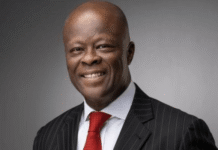- Our decision meant to avert another banking crisis – DMBs
Fresh information reaching The Witness has revealed that some top Nigerian billionaires are currently lobbying the governor of the Central Bank of Nigeria (CBN), Mr. Godwin Emefiele to save their heads following threats by chief executive officers of Deposit Money Banks (DMBs) in Nigeria to share details of chronic debtors and blacklist such.
The Witness reliably gathered from inside sources that since the disclosure of the decision by the bank CEOs, some top moneybags have continued to pressure the apex bank and its head honcho to intervene in the decision of the lender to give them time to clear up their debts.
Aside from this development affecting their businesses, bank debtors are more uncomfortable with the idea of making their names public, especially at a trying time like this. They are deeply afraid that the policy may throw them out of business, especially for those of them who need foreign exchange to operate.
Chronic debtors, analysts say, are those debtors who are unwilling to repay their loans to the banks.
The decision which the DMB’s are ready to implement to the letter, is aimed at forestalling the growing amount of non-performing loans NPLs, in the books of financial institutions to avert another banking crisis in the country.
Recall, CEOs of DMBs across the country recently agreed to share details of chronic debtors and blacklist such.
The bankers made this known after a meeting held to discuss how some debtors have been allegedly using law enforcement agencies to harass and criminalize bank CEOs.
In a statement, the group said the affected debtors are not ready to repay their loans. The group spoke in Lagos after reviewing what it called the “harassment and criminalization of banks’ CEOs by law enforcement agencies.” It noted that chronic bank debtors were now in the habit of enlisting law enforcement agencies including police, judiciary and state security to harass and criminalize bank CEOs, saying this was unacceptable. “Notably, these loan defaulters are known to have abused court processes as well as using social media to propagate their smear campaign against the banks,” the group said.
A communique issued following the meeting noted that these activities by the law enforcement agencies and the bank debt defaulters were capable of adversely affecting the banking system vis-à-vis the CEOs’ reputation amongst international banks, destroy the economy, and called for these to be checked and managed.
In order to tackle what they see as an emerging threat to banking business in Nigeria, the committee outlined a five-step resolution of actions that banks would need to take. The resolutions and planned actions were arrived at after members discussed and considered different options for dealing with the issue.
Specifically, the banks’ CEOs said there was an urgent need for all banks to cooperate and collaborate to identify and ex-communicate chronic debt defaulters, noting that this goes beyond “publishing names of such defaulters in national media (which is inevitable), but involves all banks speaking with ‘one voice’ and sharing information about those entities, and refusing to do further business with them until they settle their obligations.”
To avoid the kind of crisis that rocked the banking sector 10 years ago, the CEOs urged all agencies and stakeholders to step up and help fight the inherent menace of chronic loan defaulters.
According to the CEOs, the banking industry is the backbone of the Nigerian economy, therefore, it is the responsibility of all stakeholders – regulators, police, judiciary, corporate organizations and media to help save it from activities of delinquent debtors.
Besides, the group resolved that all cases of defaults would be presented and passed through the Bankers’ Committee Ethics Committee just as it intends to work with legal councils and come up with ways and strategies to manage related cases effectively without disrupting businesses and the system.
In a recent publication, Access Bank had threatened to publish the names of customers refusing to settle their debts in national dailies.
In a statement, the bank had said it is acting in line with a directive from the Central Bank of Nigeria (CBN).
“All Access Bank Plc (including former Diamond Bank Plc) debtors are directed to pay up their past due obligations in order to avoid punitive actions being taken against them,” the bank said.
The statement added, “Please note that we shall publish our debtors’ names in newspapers in two weeks.
“Similarly, in the event that these obligations are not fulfilled, we shall take such further actions against such delinquent individuals and companies as we may consider necessary and shall relentlessly pursue full recovery of all our debts.”
While experts appear to condemn the act of borrowing and refusing to repay the loans, they are more afraid of the bad implication it could have on the macro economy.
Managing director/CEO at BIC Consultancy Services, Dr. Boniface Chizea, in a chat with newsmen believes that since the CBN has autonomy it can take decisions in the best interest of the economy.
He, however, said the idea was good for the banks, but advised that caution should be applied in order to publish only names of those who actually owe.
”The autonomy of the Central Bank should have instrument autonomy which implies that the Central Bank should have unhindered freedom to decide on how best to achieve its mandate without any dictation from any quarters. If the Bankers’ Committee which the CBN chairs decides to publish the names of debtors, so be it.
“We just hope that in embarking on this name-and-shame approach, due care is exercised so that the names of actual debtors are published.
”We had an experience during the immediate past administration when a deluge of rebuttals and retractions followed an attempt to embark on similar exercise. We must avoid such embarrassments this time around.
“If names are to be published, due care must be exercised to ensure the names of only those culpable are published. It is embarrassing and unfair otherwise considering the potential damage to reputation such a move will occasion. It is not good for the creditors for their names to so published as most of these recalcitrant debtors are the juggernauts in our midst; the movers and shakers; the financiers of electoral campaigns who often think that because of their access to the powers that be they remain beyond the law.
”This is a last resort desperate measure meant to stem the wind of distress overtaking the banks leading to a harvest of bank failures. It is good for the banks generally as it has the effect of sanitizing the banks to restore them to sound health to continue to provide banking services, sustain the going concern and continue to return dividends to their many shareholders and stakeholders,” he concluded.
It would be recalled that the immediate-past CBN governor, now Emir Kano Sanusi Lamido Sanusi, had published names of those indebted to some of the banks that failed the second phase of the apex bank’s stress test in 2009.
Asset Management Company of Nigeria, AMCON had in 2013 called a governorship candidate in one of the South-south states of Nigeria a chronic debtor for his unwillingness to liquidate his debt to some banks.

























